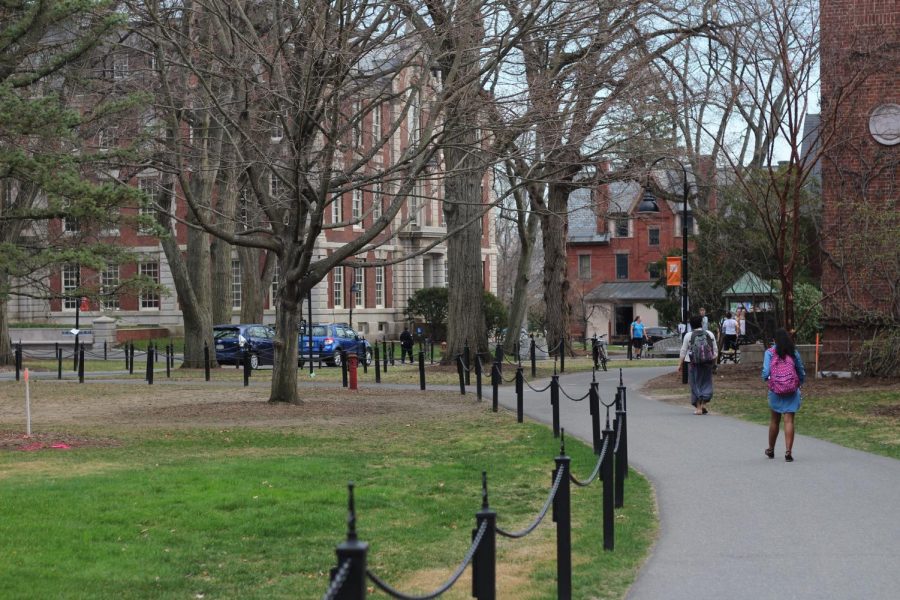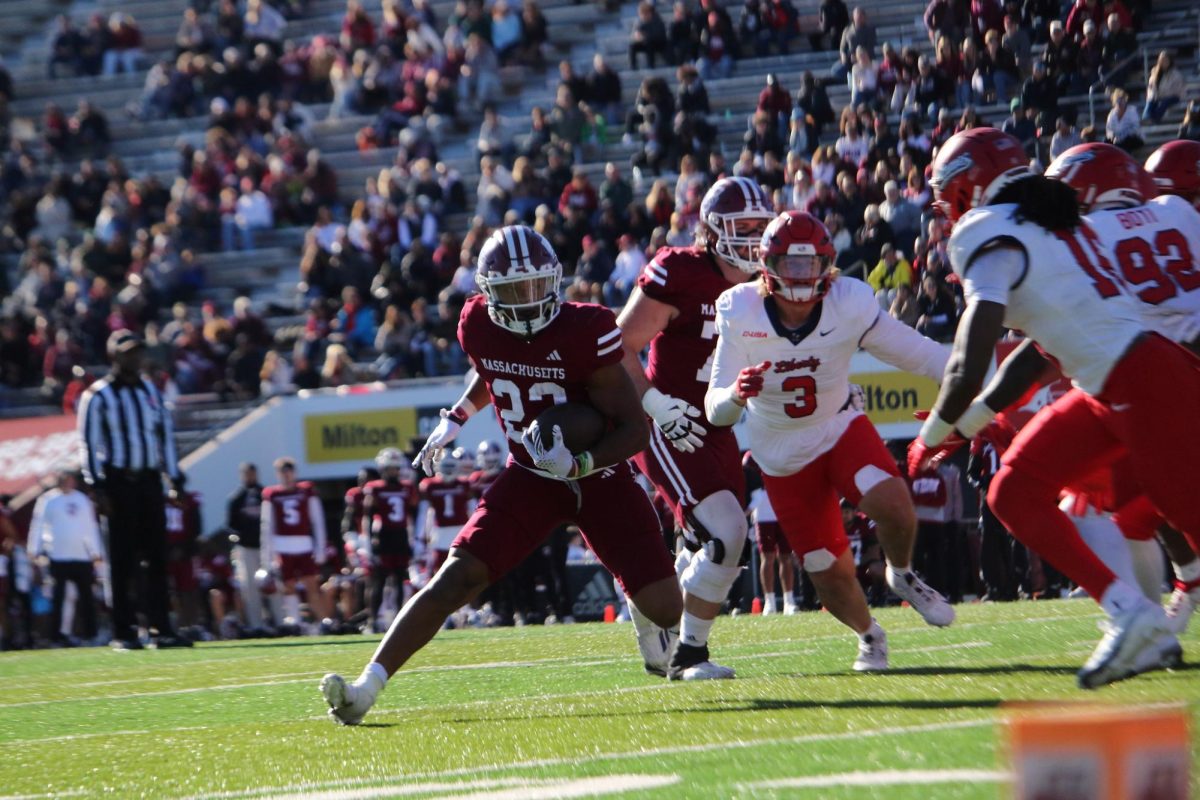Nick Mullins, author of the environmental blog “The Thoughtful Coal Miner,” spoke at Smith College on Wednesday on the political and social factors that have led to divisions between coal miners and environmental activists.
Mullins is a fifth-generation coal miner in central Appalachia, where he worked in underground coal mining before leaving the job and turning toward a career in environmental activism. His blog addresses the many issues that impact coal miners and serves to fight back against pro-coal messaging from large coal companies.
In his talk, titled “Coal Climate and Environmental Backlash,” Mullins argued that the emergence of outside environmental activists in coal mining regions calling for the reduction of such mining, in combination with coal companies showing alleged support for coal miners in advertisements and messaging, has attributed to the divide between coal miners and environmental activists.
“If you are a coal miner, there are no other jobs in the area, you have a sick child that needs care, needs health insurance…who are you going to believe?” Mullins asked the crowd of about 40 people. “Are you going to believe the coal industry narrative and the fact that they do seem to at least be trying to fight for your job and keep you in the job, or somebody who doesn’t come from the region, who appears an elitist, who doesn’t understand or care to understand?
“That has been the unfortunate problem we have faced over the past 15 years in this jobs-versus-environment dichotomy,” Mullins added.
Throughout his talk, Mullins described the efforts of coal companies to gain the support of coal miners throughout the country, which included displaying pro-coal miner advertising and sponsoring local sporting events, in order to foster a cultural identity among the miners that supported the coal companies.
“It was only until environmental activists or somebody else came in and began attacking that the coal industry created this new narrative,” Mullins said, “and began working actively and spending millions of dollars to counteract it and to reconnect [coal miners] with a cause of deeper cultural identity for themselves.”
He then went on to explain the political ramifications of these efforts and the divisions formed through showing voting trends over the past four presidential elections. According to Mullins, in each presidential election since 2000, Appalachian states have become more supportive of Republican candidates due to perceived Republican support of coal miners and coal companies.
Sophie Meacham, a senior government major at Smith College, agreed that activism can be perceived at times as elitism and wondered what can be done to fix the issue.
“I think that Smith and institutions of higher education often have this elitist air to them,” Meacham said, “and even Smith College is this institution that has sort of prided itself on having this long history of being involved in social justice activism. But—and this is something I struggle with a lot—how do we use [activism] in a way that is actually productive in communities and not just within the closed bubble that is Smith College?”
Mullins also described what he felt were the various negative aspects of coal mining, including the physical strain and danger the job presents to miners. He even provided a personal anecdote about how his uncle suffered immense pain due to his time spent working in the coal mines.
Additionally, Mullins cited the environmental consequences of mining, particularly in mountaintop removal, where coal companies will strip away vegetation on the tops of mountains and then use ammonium nitrate fuel oil mixture in order to reach the coal underneath, a process that pollutes the surrounding valleys.
“Of course [this dumped fuel-oil mixture] fills up the valley and covers up any perennial streams,” Mullins said, “and effectively pollutes, for generations to come, the fresh water streams of our major river systems.”
Kay Colletti, member of the Smith Divest Campaign, an organization of Smith College students working to get the college to divest its endowment money given to fossil fuel companies, noticed connections to her own work in the campaign.
“The whole origin of our campaign actually came from someone from West Virginia who saw the way the coal industry had affected her community and her family and her personally, and that was the driving charge,” Colletti said. “It’s really awesome to get firsthand experience and have someone who grew up in the area come talk about what is going on.”
Will Mallas can be reached at [email protected].





















Nick Mullins • Apr 16, 2018 at 9:25 am
A correction needs to be made. As explained in the lecture, Amonium Nitrate Fuel Oil is the blasting agent used to loosen the layers of rock that constitute the mountain. Once blasted and loosened, the overburden or “mountain top” is removed and dumped into an adjacent valley to access the coal.
WV Environmentalist • Apr 12, 2018 at 11:16 am
I don’t know where Mr Mullins gets his facts, but the majority of people in Appalachian fighting coal are local residents and those “outsiders” are allies they invited in to help. He is just perpetuating the “us vs. them” stereotype. The coal industry has worked hard to paint the local folks fighting coal as “outsiders” when most of them are multi-generational Appalachians. Mr. Mullins is just adding fuel to this propaganda. Also, Mr Mullins fails to acknowledge that it was these “outside” environmentalists who helped him build his “reputation” as the Thoughtful Coal Miner by allowing him to speak at THEIR events and even helping fund many of his speaking tours. And the “ammonium nitrate fuel oil mixture” is barely a tiny fraction of the pollution that come from Mountaintop Removal sites. Most of the damage comes from natural occurring elements locked in the ground that, when oxidized, become toxic and heavy discharges of other elements like selenium.
As a life long multi-generational West Virginians who is an “environmentalist” fighting coal and other industries, I think Smith College needs to vet your speakers before giving them media coverage.